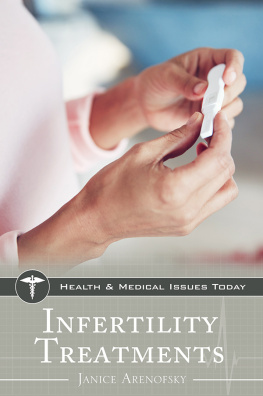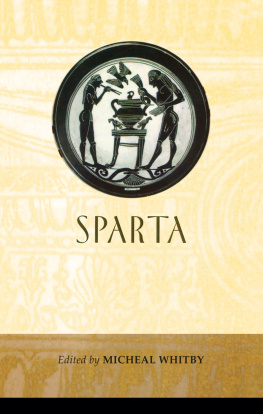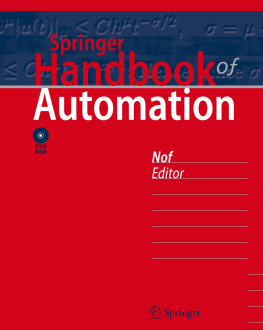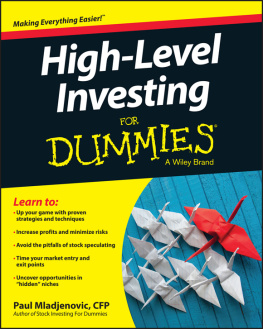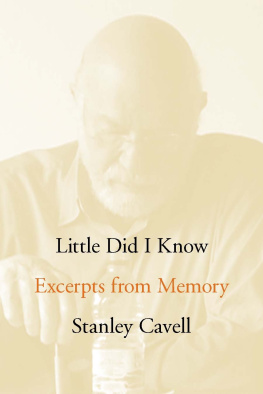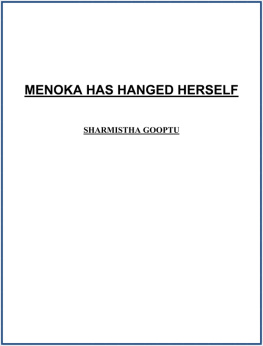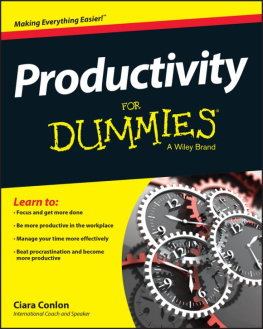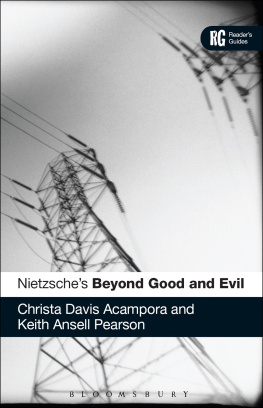To Family.
I originally read the manuscript for this book out of curiosity because one of its authors had been my patient a few years earlier, and I was curious to see what she was up to. I started reading it while flying home from a conference, and when I looked up again, we had landed. That rarely happens to me with any kind of writing.
In my thirty-five years of practicing medicine, I have worked with countless couples. I have witnessed the development of reproductive endocrinology from the isolation and development of antibodies for the radio immuno assay of many reproductive hormones through the era of tubal microsurgery and sophisticated ovulation induction techniques. In recent years weve had the advent of assisted reproductive technology and the many aspects of in vitro fertilization, which have truly changed the options available to all couples.
But no matter which infertility treatments are available, it is most important that health care providers be totally honest and ethical with patients who have infertility because the intense desire for a child renders many people far more vulnerable to infertility entrepreneurs. The advent of managed care and the growth of large infertility centers has unfortunately brought with it the loss of the direct, detailed, personalized patient care given by an individual physician. I remain convinced that every couple must be assessed individually, rather than following a generic protocol that conforms to the masses. A doctor cannot achieve pregnancy in every couple. But once we know that we are up against an incurable problem, it is incumbent upon us to level with them as soon as possible to resolve their needs in a timely and in the least painful manner.
This book is refreshing by virtue of its honesty, integrity, and the straightforward presentation of the facts of infertility. Julie Vargo and Maureen Regan talk about taboo topicswith personal admissions regarding everything from career versus commitment to motherhood, personal choices and consequences, the male partner and his feelings, and the realities of marital stress. Julie and Maureen even remind us that most first-time mothers who conceive after age forty-two have accomplished the dream with donor eggsand thats cool, if thats what you want. However, if you want your own biological baby, early and prompt assessment by a specialist is strongly advised.
This is good stuff. These are things women need to hear.
Both Julie and Maureen went through assessment and treatment for infertility. So did many of their friends. They dont talk like doctors. They tell it like it iswoman to woman. Reading this book, I felt as if I were sitting at the table, too, listening to the girl talk that professionals rarely, if ever, hear. Their perspective was not new to me, for I pride myself in spending adequate time listening to each patients individual concerns and needs with much compassion and sensitivity. But the frankness and transparency with which Julie and Maureen talk about their experiences gave me a lot of insights, and I believe this book will be a truly positive inspiration to other women and men facing infertility.
A Few Good Eggs is written with much wisdom. It is a direct, seriousand yet humorousreview of the many factors that truly affect couples who are pursuing their dreams of having children. The book contains a very timely message about the pandemic of infertility, which affects one in six couples. It emphasizes the challenges to women who are facing their ticking biological clocks, and it stresses that earlier motherhood is easiest and probably best. Julie and Maureen strongly advise the need for a balanced and healthy lifestyle, both mentally and physically. They emphasize the need to be well-informed and to ask the right questions of their physicians. An excellent chapter reviews the monetary issues, focusing on the immense burden of financial stress upon a couple, and how to create realistic financial expectations.
These two women say things in their book that medical professionals dont, cant, or wont say. They make it clear that OB/GYNs are not necessarily trained in infertility. They describe why women should seek the expertise of reproductive endocrinologists sooner rather than later. This is particularly important if you are over thirty-fiveyet no one has really said it so straightforwardly before. Women should have reasonable, but justifiable, expectations from the physicians who are caring for them. Many patients dont know that legitimate fertility doctors are truly available 365 days a yearincluding weekends and holidays. Julie and Maureen not only realize itthey want the rest of the world to know as well.
The authors intimately report their own personal responses, anxieties, and mood swings as they went through the barrage of fertility tests and drug therapies one must endure. They also offer some ingenious ways of coping with the hormonal changes and expectations throughout the menstrual cycle. The need for couple and partner communication throughout infertility treatment is expressed in great detail, as well as the importance of counselors, ministers, and professional therapists. With much humor, they earnestly remind us all that your sister, cousin, or best friend may not be your best adviser during this difficult period. There are even positive ideas for couples as they go through sperm collection and insemination!
To me, the most important part of this book is its message that you should do for yourself what must be done. Couples should have sufficient knowledge to ask the questions and expect reasonable explanations for delays in success. As Julie and Maureen point out, no couple should accept a persistent response of Just keep trying, Its bad luck, or Well get it right some time.
With its great wisdom, good humor, and sensitive and detailed presentation, A Few Good Eggs is a must-read for all couples struggling with infertilityand highly recommended reading for all young women who need to make informed decisions about their long-term life aspirations to balance career with motherhood.
Brian M. Cohen, M.B.Ch.B., M.D. (postdoctoral)
Diplomat A.B.O.G.Subspecialty Reproductive Endocrinology
F.A.C.O.G., F.R.C.O.G. (London), F.C.O.G. (S.A.), F.A.C.E., F.I.C.S.
Clinical Professor, Department of Obstetrics and Gynecology at University of Texas,
Southwestern Medical School
Director, National Fertility Center of Texas, P.A., Dallas


